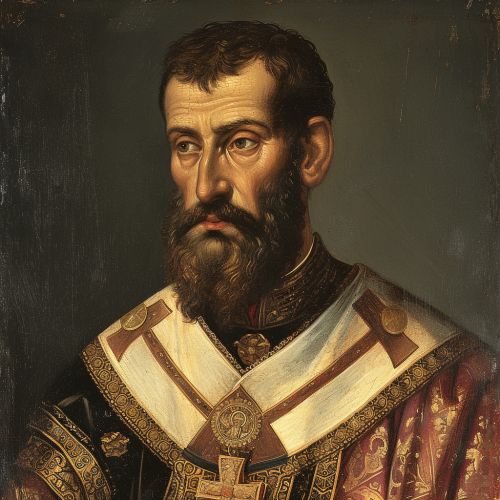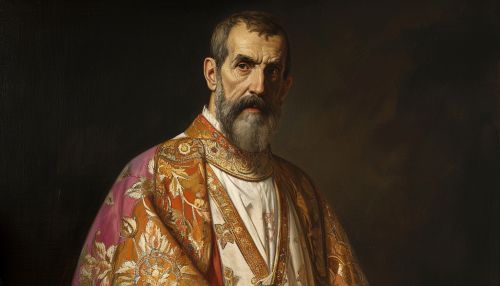Photius
Early Life
Photius was born in Constantinople, the capital of the Byzantine Empire, in the year 810. His family was part of the city's aristocracy, and his father, Sergius, held the position of spatharios, a high-ranking military and court title. Photius received a comprehensive education, studying rhetoric, philosophy, and theology.
Career
Photius began his career as a public servant, serving in the imperial secretariat. In 855, he was appointed Patriarch of Constantinople, the highest position in the Eastern Orthodox Church, despite having no previous ecclesiastical rank. This appointment was controversial and led to the Photian Schism.
Photian Schism
The Photian Schism was a significant event in the history of the Eastern Orthodox Church. It began in 858 when Photius was appointed Patriarch of Constantinople. Ignatius, the previous patriarch, had been deposed and Photius was appointed in his place. This led to a conflict between the supporters of Photius and those who remained loyal to Ignatius. The schism lasted until 867 when Photius was deposed and Ignatius was reinstated.
Later Life and Death
After his deposition, Photius returned to his scholarly pursuits. He wrote numerous works on theology and philosophy, many of which are still studied today. He died in 893, but his influence on the Eastern Orthodox Church and Byzantine culture continues to be felt.
Legacy
Photius is remembered as a scholar, theologian, and church leader. His writings, particularly his 'Bibliotheca' or 'Myriobiblon', a collection of extracts from and summaries of 280 volumes of classical authors, the originals of which are now to a great extent lost, are a significant source of information about the Greek literature of the past. He is also known for his role in the Photian Schism, which had a lasting impact on the Eastern Orthodox Church.
See Also


